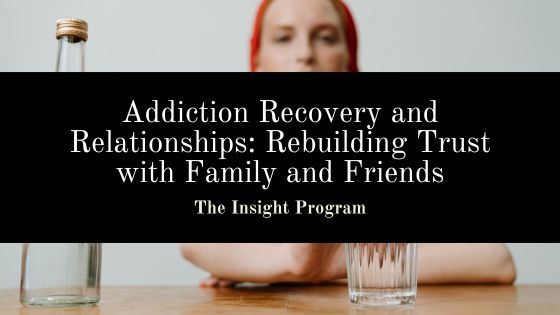Addiction can leave a trail of damaged relationships. Lies, broken promises, emotional distance, and sometimes even betrayal are common consequences. While the road to sobriety is about personal healing, it also involves repairing the relationships that were affected along the way. Rebuilding trust with family and friends is one of the most challenging yet rewarding parts of addiction recovery.
Understanding the Impact
Addiction does not occur in isolation. Loved ones are often caught in the storm, feeling hurt, confused, or helpless. The emotional scars can run deep, and while recovery begins a new chapter, it does not erase the past. Rebuilding trust takes time, patience, and consistent action. It requires understanding the pain others experienced without becoming defensive. Acknowledging this impact is the first step toward healing relationships.
Open and Honest Communication
Rebuilding trust starts with honest communication. This means taking responsibility for past behavior and being transparent moving forward. Avoiding blame and excuses is key. A sincere apology can go a long way, but it must be followed by meaningful change.
It is also important to listen. Loved ones may need to express their hurt, frustration, or fear. Give them space to speak without interrupting or trying to fix everything immediately. Just being present and hearing their experience can help restore a sense of connection.
Setting Boundaries and Expectations
Healthy relationships require clear boundaries. During addiction, boundaries were likely ignored or violated. In recovery, both parties must learn how to set and respect limits. This might include agreeing on what topics are off-limits, deciding how much contact is appropriate, or establishing consequences for certain behaviors.
Boundaries are not about control, they are about mutual respect. They protect the relationship and provide a framework for rebuilding trust. Respecting others’ boundaries, even when they are difficult to accept, is part of the healing process.
Consistency Builds Trust
Words alone are not enough to repair relationships. Trust is rebuilt through consistent actions over time. Showing up when you say you will, keeping commitments, and demonstrating stability are all powerful signals that change is real.
Loved ones may still be skeptical, especially if they have been let down before. That is natural. Instead of trying to rush the process, focus on being dependable day by day. Over time, small, steady actions create a strong foundation for renewed trust.
Seeking Support Together
Sometimes, rebuilding relationships benefits from professional guidance. Family therapy or support groups can provide a safe environment to work through emotions and improve communication. These settings also help family members better understand addiction and recovery, which can reduce misunderstandings and resentment.
Moving Forward Together
Recovery is not just about sobriety, it is about rebuilding a life. That life includes the people who matter most. While some relationships may not fully recover, many can grow stronger than before. Rebuilding trust with family and friends takes time, effort, and vulnerability, but the rewards are deep and lasting.
Healthy, supportive relationships offer encouragement, accountability, and love. They remind individuals in recovery that they are not alone. With honesty, patience, and consistent care, it is possible to move forward together and create a new future rooted in trust and connection.

